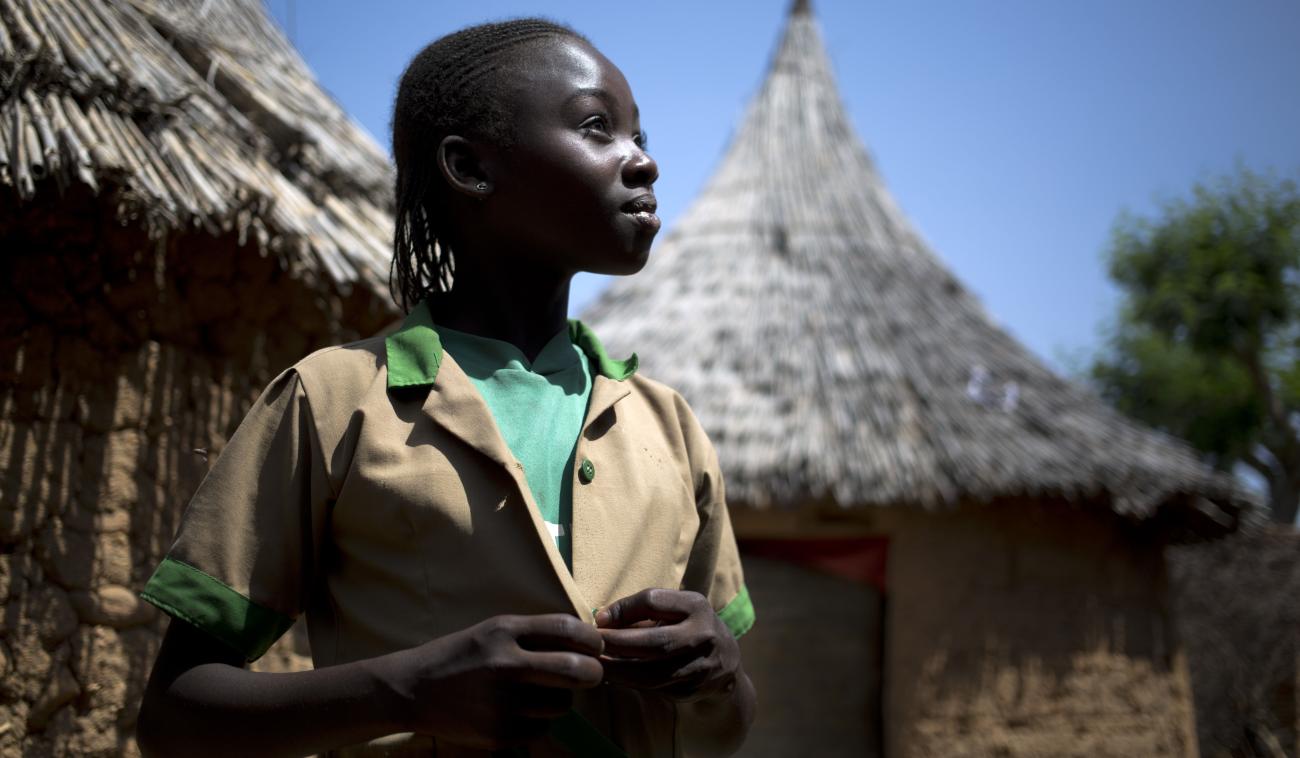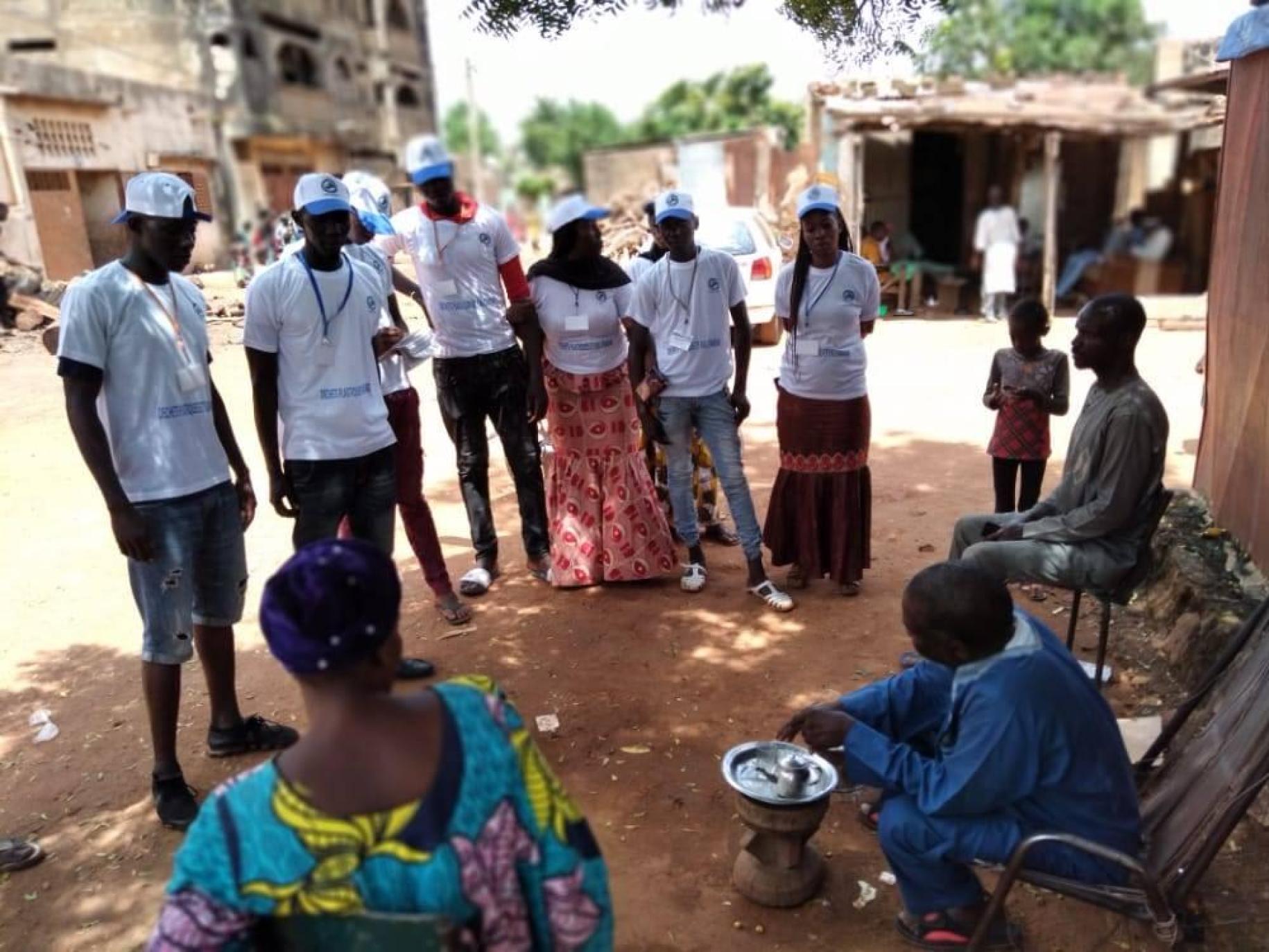Communities address root causes of the crisis in Burkina Faso, Mali and Niger

A collaboration across the humanitarian-development and peace nexus is needed now more than ever to recover better from the COVID-19 pandemic.
Protracted political, security, and humanitarian crisis in the Sahel region led to a plethora of challenges for its people, such as access to basic services, including food, water and sanitation, health, and education, especially for the most vulnerable. We must address the underlying drivers of crises in Central Sahel if we want to see peace and long-term development goals in the region. All actors from humanitarian, development and security must work together in fragile and conflicts affected countries.
As a part of the reform to accelerate the achievement of the global goals, the UN is working in more cohesively together. As stated by the UN's Deputy Secretary General, Amina J Mohammed:
“Only a collective, integrated and inclusive approach, owned and led by the countries of the region, will support sustained progress towards the lasting peace and development that are so jointly needed in the Sahel."
Forty per cent of the Malian population live below the poverty line, and national budget allocated to basic social services is being cut every year. The Liptako-Gourma region bordering Burkina Faso, Mali, and Niger suffers from an absence of state institutions, competition over natural resources, limited livelihood opportunities and violent extremism by armed groups.
UN teams, together with local and international partners on the ground, are taking measures to support and complement Governments’ humanitarian response. These efforts have aided communities to face the escalating challenges of this crisis.

Today, we highlight three examples of this coordinated work.
1. Farmers and Pastoralists work together for peace in Niger
The people of Niger faced continued insecurity in their lives and livelihood due to weak rule of law and inter-communal violence that resulted in the displacement of entire communities.
With the support of the Peacebuilding Fund, FAO and UN Women, farmer-pastoralist conflicts reduced as women and youth trained as peacebuilders in the conflict-prone regions. More than 350 community groups, or ‘Dimitra Clubs,’ were established in 60 villages, with more than 10,000 members, including over 6,000 women, and deployed 151 women mediators to 20 land commission for the first time, benefiting 10,521 people.
“Since we started our mediations, the farmers accepted the passage of cattle in their fields thanks to the creation of the passage corridors. Peace between farmers and herders has been re-established” tells Ramatou, woman mediator in the Dimitra Club, Niger.
2. Community clubs resolve disputes in Niger
In the small town of Fabidji in the Dosso region in Niger, local disagreements between herders and farmers fueled by competition over resources created significant tensions. As conflicts became recurrent and threatened the peaceful coexistence of communities, community ‘Dimitra’ clubs were created to engage women in central roles as mediators in conflict prevention.
"Each club meets separately to discuss specific issues in a safe space," explains Abdoulaye, a farmer. "Then, all the clubs get together in a village and prioritize the problems and find solutions. We have been able to restore dialogue among ourselves as we don't want to be dependent on outside support to solve our issues."
"For many years our village did not have a decent harvest, mainly due to the farmer-herder rivalries. Since the establishment of the Dimitra Clubs and the interventions of the women mediators, we have had the best harvest this year as the animals did not destroy the fields. This has also brought peace in our homes," another farmer added.
The success of the Dimitra Club system and its ability to generate locally owned solutions to farmer-herder conflicts have become popular in the area. Neighboring villagers interested to know more about the clubs' work attended village assemblies. "When we saw how these clubs had an impact in Fabidji, we decided to create Dimitra clubs in our village," said Mariama, a young woman from the neighboring community." Our girls and young women faced harassment by men. With the Dimitra club, all young women joined forces and explained the issue during a village assembly. We, as young women, now feel safe and empowered to express our concerns."
3. Bonding communities to work together in Mali
In Mali, people experienced an improved security environment with the creation of 46 local early-warning and peacebuilding committees in three countries supported through a partnership between UN Peacebuilding and the UN Development Programme (UNDP). Conflicts between farmers and pastoralists reduced significantly by strengthening pastoral infrastructure with an agreement on 31 passage corridors, six water points, four vaccination parks, rest areas, and two marked cattle tracks. Ten local joint infrastructure management committees helped familiarize the herders and farmers on local land laws and reduced internal and cross-border conflicts. The participation of young women and men as community radio presenters increased the outreach on the monitoring and management of conflicts and bonded communities to work together.
“We are women from different communities, and we meet regularly in this space to exchange ideas linked to social cohesion and living in society. Some reconciliation efforts have a totally different dynamic when women are involved in the peace process.” Ms. Saouda Dicko, president of the Peace Hut, Soni Ali Ber, Mali.
Many more lives can be saved
The coordinated and sustained efforts of the UN entities and partners have saved and protected millions of lives. Aid agencies have provided nutrition and food, health services, water and sanitation, shelter, education, protection and support to survivors of gender-based violence.
So far this year, 1.8 million people in Burkina Faso, 1.3 million in Mali and 1.9 million in Niger have received humanitarian assistance. This was achieved with just 40 per cent of the humanitarian funding we require. But with full funding, many more lives can be saved while alleviating human suffering.
The Government of Denmark, in partnership with the Government of Germany, the European Union and the United Nations, is hosting a humanitarian event on the Central Sahel today, 20 October 2020. The high-level event will feature a ministerial round table that will focus on operational lessons learned and forward-looking plans relating to humanitarian action, development and peace efforts, including special attention to the impact and consequences of COVID-19. To watch the stream of the event visit UN Web TV.
Humanitarian action can help prevent this emergency from deteriorating, but long-term, sustainable solutions are also needed to address root causes that are driving up humanitarian needs, such as ensuring good governance, investing in development, engaging in conflict resolution and the pursuit of peace.
This article has been adapted from articles originally published to the UN Peacebuilding website. To access more information and resources related to the high-level event visit, OCHA's dedicated event page here.





































